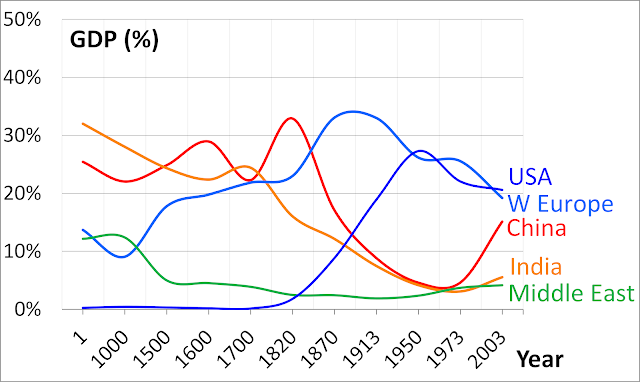Last week, Penn Law professor Amy Wax went on Tucker Carlson's show to argue that Indians come from a "shithole" country, which engenders feelings of jealousy within them, and causes them to criticize certain aspects of white culture. In the past, she made similar arguments about how Asians are culturally inferior. She has also said that the United States "will be better off with more whites and fewer nonwhites," again because nonwhite cultures are inferior. Ms. Wax's comments remind us that talented minorities may wish to think twice before possibly wasting their life in law.
Let me try to explain via an example. Say you're an Indian engineer in Silicon Valley. Say you stumble on a speech proselytizing that tech companies will not be successful unless they hire white employees, and that Indian employees and their inferior culture impede success. You would have to laugh at how out of touch the speaker is. A big tech company couldn't compete without Indian and Chinese talent; it would be dead in the water and quickly overtaken.
The same is true for many other industries. But in law, a big firm can succeed if it only hires white lawyers. As a matter of fact, there are huge and successful law firms that are essentially all-white. This unique aspect of the legal profession is why law is different from other industries. It's why racist thoughts can survive in law.
Now, I don't mean to suggest that law is a great profession for white people. It can be an unpleasant job for them too. Lawyers are endlessly engaged in bitter and acrimonious fights. Indeed, I am not surprised to see Ms. Wax go on national television and use vulgar language to insult billions of people who did nothing to her. A life in law breeds that sort of personality. I am also not surprised to see Ms. Wax put on airs, despite the fact that according to Ari Cohn she comes from a family of relatively new Eastern European Jewish immigrants. Lawyers have to train their brains to lie. They do it so much that sometimes they start to believe their own role playing.
The work of a lawyer doesn't necessarily make the world a better place either. Amy Wax talks about how Asian immigrants will harm the country, but, e.g., pharma lawyers, lobbyists and regulators started an opioid crisis that has killed half a million Americans so far, and could take decades to fix. Some lawyers make money by promoting corruption in government (and when lawyers do the right thing in the face of an incentive to be corrupt, they risk angering powerful people who will come for them with a vengeance.) All of the above occurs if the lawyer actually gets a client, which can be a demeaning process in itself.
So no, please don't get me wrong, law is not exactly a dream job for white people. But it can be especially bad for minorities because in law, on top of everything else, they have to deal with racism at a level that couldn't exist in other professions.
* * *
After listening to her comments, I wrote Ms. Wax to ask her to please research the history of India and China, as well as the state of the world as it is today. The British Empire may have temporarily turned those two countries into "shitholes," but I'm not sure why she would blame Indian and Chinese cultures for that. They did their best to repel the violence and economic waste the British would inflict. Unfortunately, they were a little behind in military technology, and so suffered a temporary dark period. Dr. Shashi Tharoor has numerous presentations on this history (links one and two.)
But both India and China kicked the corrosive British out as soon as they could, and are quickly restoring their prosperity to levels that existed before the British arrived. For example, before the opium wars, China was in its affluent High Qing era, where it enjoyed a massive trade surplus with the rest of the world. Today, after decades of effort, China once again enjoys a massive trade surplus with the world. India is also on its way to recovering, after having an estimated $45 trillion looted by the British. Things are returning to the way they were before the 19th century. And that temporary period of decay reflects more on imperial British culture than it does Indian or Chinese culture.
Amy Wax, Penn, Indian medical students, brahmin
The global contribution to world's GDP by major economies from 1 CE to 2003 CE. From https://en.wikipedia.org/wiki/Economic_history_of_the_world
